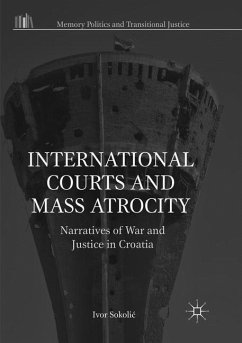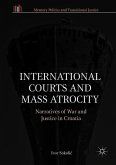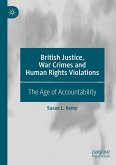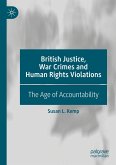The extra-legal effects of international and domestic war crimes trials continue to puzzle researchers and practitioners. In the former Yugoslav states, the legacy of conflict and issues of transitional justice remains central in politics, society and culture. This book provides a new theoretical and methodological approach to one of these puzzles: why universal human rights norms become distorted or undermined when they reach local publics. It investigates the social and cultural contexts that transitional justice processes take place in by looking at how emotional everyday narratives can hamper the spread of norms in society. In Croatia, these narratives define how the public understands the rule of law, history and minority rights.
"This book is a must-read for all scholars, as well as practitioners, who are trying to understand the difficult process of coming to terms with the past and all the complexities of this process in which an individual needs to first learn about, discuss, interpret and understand the traumatic past in order to (potentially) come to terms with it." (Tamara Banjeglav, Southeastern Europe, Vol. 44 (2), 2020)
"International Courts and Mass Atrocity provides an in-depth analysis of the transitional justice process in Croatia. Sokolic not only works through the fault lines of the ICTY regarding the case of Croatia, but also sheds light on an issue that the international criminal justice system as a whole often neglects: namely, the strength of the local in creating and maintaining war narratives. The book is therefore a must-read for transitional justice scholars and practitioners both in the Balkans and beyond." (Ebru Demir, LSE Review of Books, blogs.lse.ac.uk,May 08, 2019)
"International Courts and Mass Atrocity provides an in-depth analysis of the transitional justice process in Croatia. Sokolic not only works through the fault lines of the ICTY regarding the case of Croatia, but also sheds light on an issue that the international criminal justice system as a whole often neglects: namely, the strength of the local in creating and maintaining war narratives. The book is therefore a must-read for transitional justice scholars and practitioners both in the Balkans and beyond." (Ebru Demir, LSE Review of Books, blogs.lse.ac.uk,May 08, 2019)








